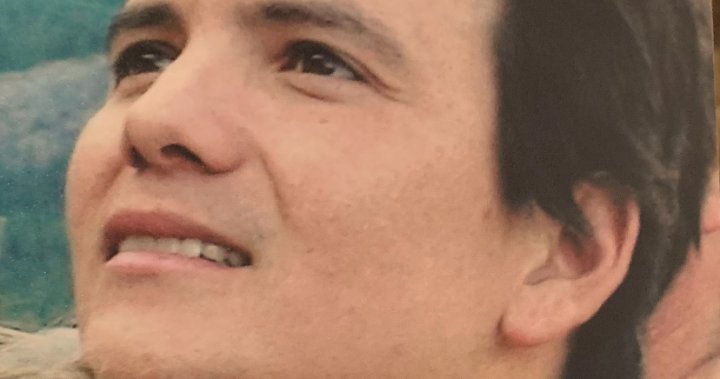A judge is now preparing the final report for the inquest into the 2021 death of Lee Earnshaw, which wrapped up in Winnipeg on Thursday.
Earnshaw, a father of four and a commercial fisherman from B.C., died in June 2021 at the age of 42, after a struggle with an opioid addiction. His family says on at least five occasions, Earnshaw tried to access treatment at rapid access to addiction medicine, or RAAM, clinics, but was turned away.
The inquest, called by the chief medical examiner, aims to examine the barriers Earnshaw faced in accessing treatment and the circumstances surrounding his death, as well as address service gaps and inefficiencies in the system in hopes of preventing similar deaths in the future.
“I lost my son, and it’s very heartbreaking. I hope no mother has to go through what I went through,” Earnshaw’s mother Stella Spence told Global News. “At least we could save some lives if something comes out of this hearing.”
For Carol Packer, Earnshaw’s sister, the inquest has been a long time coming.
“The anticipation of waiting to finally hear the truth in a court setting, listen to all the witnesses, and finally, our family having an opportunity to explain about what Lee was like in his life and how much it mattered to all of us — It feels like a huge weight has been lifted,” Packer told Global News.
Marion Willis of St. Boniface Street Links worked with Earnshaw, trying to help him access treatment. She also presented to court during the hearing.
Willis says Earnshaw was committed to changing his life, but faced numerous hurdles in accessing treatment, including being turned away for not meeting sobriety requirements and dealing with lengthy lineups and capacity issues at RAAM clinics. Challenges that are overwhelming for someone who is experiencing the excruciating physical symptoms of withdrawal, she said.

Get daily National news
Get the day’s top news, political, economic, and current affairs headlines, delivered to your inbox once a day.
“(It would be) him in the lineup, in the wintertime -30 below, (and) 12 to 16 people standing outside in line waiting to be seen at the RAAM clinic,” Willis said.
“The doors to the RAAM clinic open, they take in one person and everybody is still standing outside waiting and then that same person comes back out the door and says, ‘You’re going to have to come back another day because we’ve seen the only person we can see today.’ Should we be surprised that he died of an overdose?”
Willis acknowledged while there have been improvements in addictions services since Earnshaw’s death, including an increase in RAAM and mobile clinics and available hours, she said more needs to be done.
“I know, with all my heart I know — because I knew him and I knew how badly he wanted to live — I know that Lee Earnshaw would still be alive today if we could have just come together to agree that he needed help and we were going to find a way to help him, regardless.”
Data from the province shows that in 2024, overdose deaths in Manitoba reached a new high, with 570 Manitobans dying from an overdose. Packer says the impact goes far beyond that number.
“If you thought about just one person passing away (and) the ripple effect of what that causes. So now there’s a mother who has lost a child, siblings, cousins, children who’ve lost a parent,” Packer said through tears. “So when we say that over 500 Manitobans have passed away because of a drug-related overdose death, that number doesn’t truly reflect what’s really happened. What’s really happening is it’s countless numbers that are affected by that and it just should never happen.”
Judge preparing final report
During the inquest, presided by Chief Judge Tracey Lord, the court heard the circumstances surrounding Earnshaw’s death and the challenges accessing addictions services.
“It is because of Lee and all those who continue to suffer, that his voice must be heard and the issues and barriers he brought to light must be addressed,” Packer told the court during the inquest.
“His courage in speaking out about the barriers he faced has given us the chance to address the flaws that cost him his life.”
The court also heard from lawyers for Shared Health and Main Street Project, and heard that Shared Health only had documentation of Earnshaw attending a RAAM clinic on one occasion.
Kerry UnRuh, who was appointed as inquest counsel, presented nine recommendations before the court on ways to improve addictions services and address gaps within the system, including expanding hours for RAAM intake clinics, increasing the number of beds, addressing inefficiencies and communication within Main Street Project, assessing the withdrawal management model, and having health-care professionals travel to rural and northern communities.
Lord is now preparing her final report and recommendations.
Packer knows Earnshaw’s legacy and advocacy will help save lives.
“It will help others. He is going to be the voice that makes the changes.”
© 2025 Global News, a division of Corus Entertainment Inc.
Read the full article here

